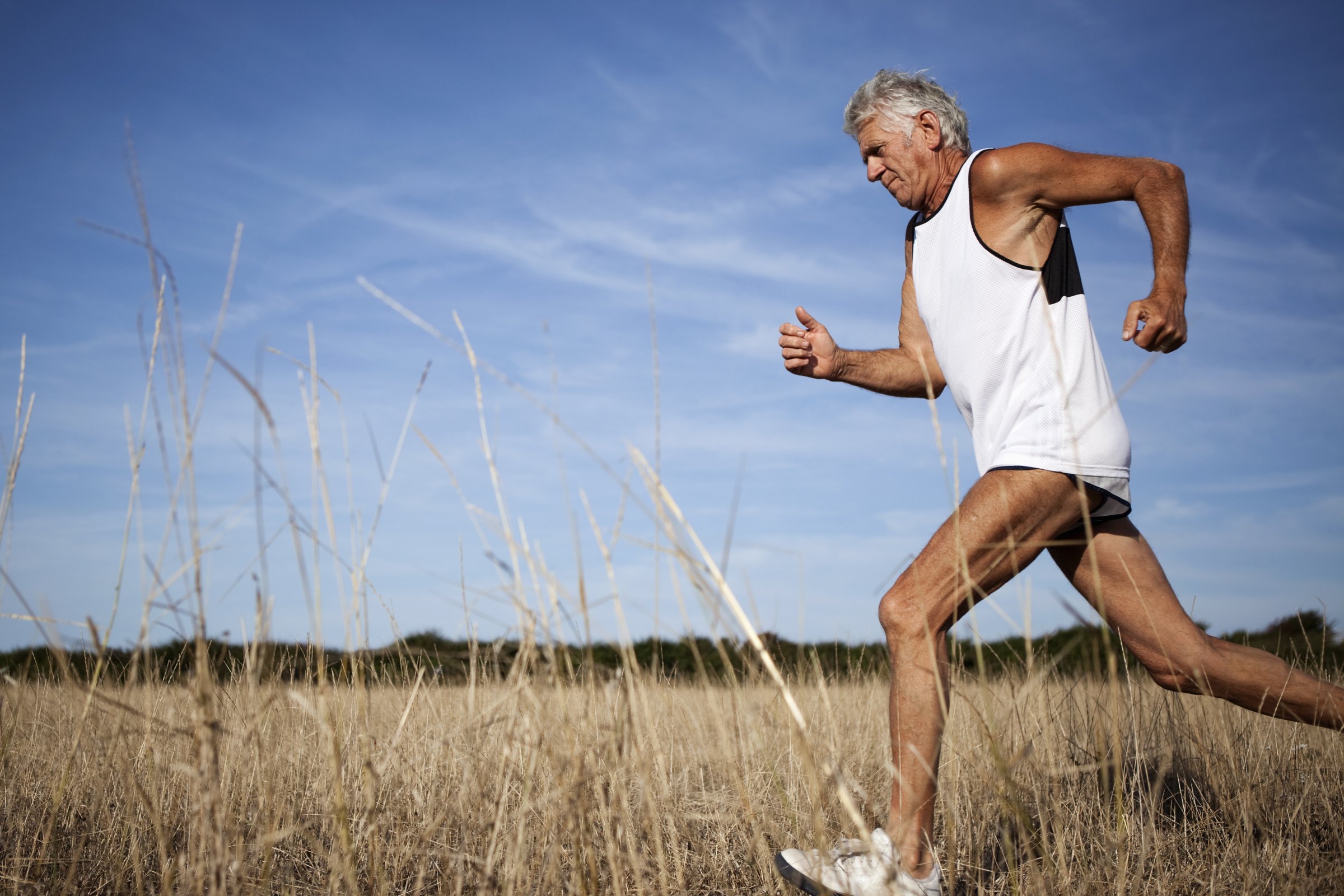
Older people who run several times a week actually expend the same amount of energy when they walk as a 20-year-old, according to a new study published in the journal PLOS ONE.
Researchers from the University of Colorado Boulder and Humboldt State University picked 30 healthy older volunteer adults around age 69 who either walked or ran regularly for exercise. The participants walked on a treadmill at the speeds 1.6 mph, 2.8 mph, and 3.9 mph while their oxygen consumption and carbon dioxide production were measured.
People who were runners had similar energy intake to a group of young adults in their 20s from a prior study. However, those elderly men and women who regularly walked did not see that same benefit, and expended up to 22% more energy than the younger crowd.
That could be because runners have better muscle efficiency compared to walkers, or because more vigorous exercise may better train the body. But it doesn’t mean that walking doesn’t have its share of health perks. Walkers still experienced a lower risk for ailments like heart disease and depression.
The researchers say more studies should look at the link between exercise and the effects of age on the body. The authors write that it’s unknown whether there is “an intensity threshold of aerobic exercise that is needed to prevent the decline in walking economy.” But that knowledge could be useful in preventing some of the degenerative side effects of old age.
More Must-Reads from TIME
- Cybersecurity Experts Are Sounding the Alarm on DOGE
- Meet the 2025 Women of the Year
- The Harsh Truth About Disability Inclusion
- Why Do More Young Adults Have Cancer?
- Colman Domingo Leads With Radical Love
- How to Get Better at Doing Things Alone
- Michelle Zauner Stares Down the Darkness
Contact us at letters@time.com